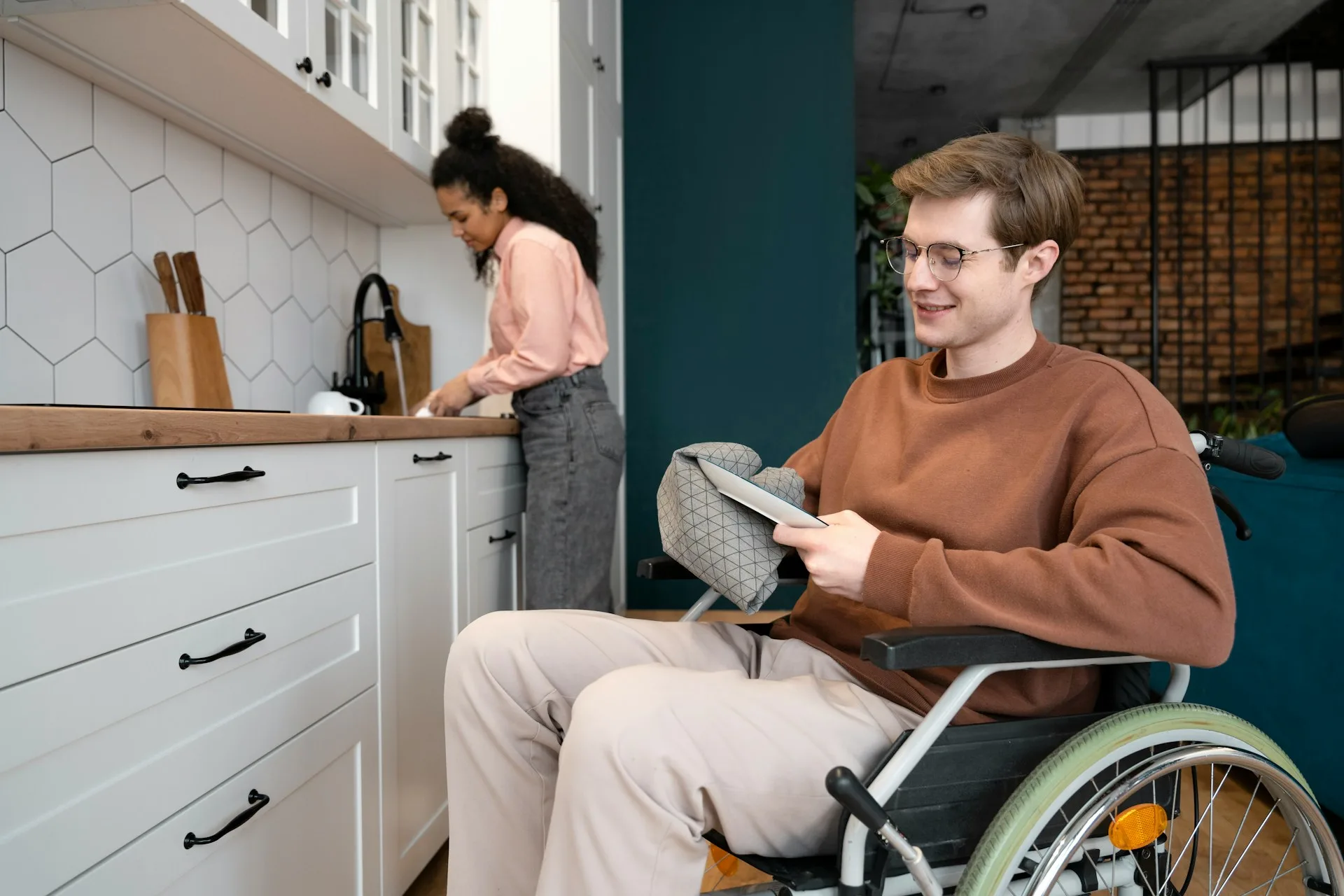People with disabilities in Ukraine show different levels of readiness to acquire new skills depending on their age. According to survey data, 81% of respondents aged 60 and older are not ready to learn new skills or change their profession. In contrast, among young people aged 18–35, 20% are fully ready to study, and another 13% are rather willing. Overall, only 15% of respondents expressed full or partial readiness to pursue new professions or skills, while 60% are rather or completely unwilling. Most participants are ready to dedicate between one and four hours per day to learning.
Read also: What do people with disabilities use in Ukraine — research
Preferred learning formats include self-paced online study (47%), attending offline courses (42%), and participating in unpaid internships (35%). Men are more likely than women to choose in-person events (45% vs. 37%), while women prefer online platforms (24% vs. 13%).
The main barriers to learning include financial costs (29%), the need for a mentor (25%), and the impact of the war — such as prolonged electricity outages (23%) and shelling or military attacks (21%).
Courses in English (11%) and programming (8%) are the most popular among respondents. Young people in particular show strong interest: 20% are interested in English and 16% in programming. Internet sales (12%) and design (11%) are also attractive to younger participants.
Read also: How to establish disability in 2025



